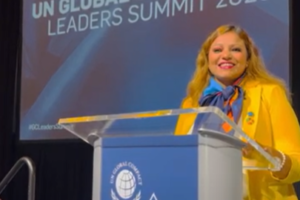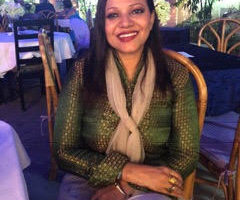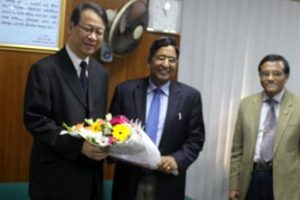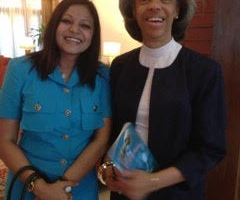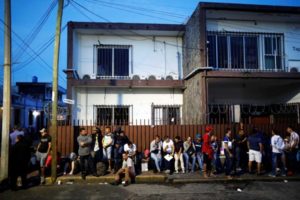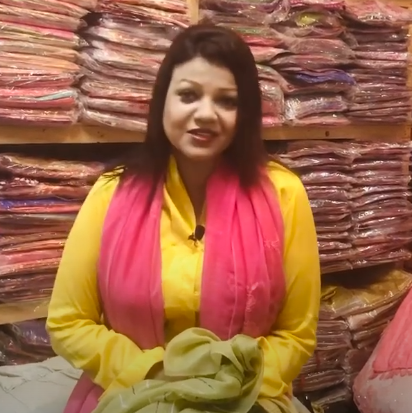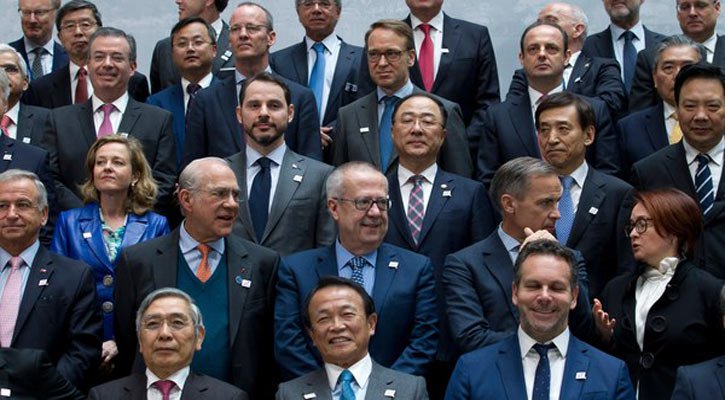Close your eyes, and listen.
“The play button is a teleportation device,” says a voice in your headphones, “that allows you to enter another world while physically staying where you are.” Strings and electronic blips whirl around in the background.
The next 19 minutes are a spoken-word journey, combining poetry, recorded phone calls, vox pop interviews, snippets of radio news and acted-out scenes, set to a cinematic soundtrack.
This is “Have You Heard George’s Podcast?,” a genre-defying piece of audio that pushes the limits of what a podcast can be. The narrator guiding you is George Mpanga, a rapper and spoken-word practitioner better known as George the Poet.
Mpanga, 28, shot to fame in Britain as a musician in 2013, and, two years later, he was shortlisted for a prestigious award whose previous winners have included Adele and Florence and the Machine. In 2018, the public got to see him in a different light when he recited a poem he wrote to open the BBC’s coverage of Prince Harry and Meghan Markle’s wedding.
On “Have You Heard George’s Podcast?,” Mpanga brings music and poetry together and adds some politics and social observation.
The show, which swept gold in five categories of the British Podcast Awards in May, is hard to pin down. Across the eight episodes of the first season, Mpanga free-flows evocatively through issues that have been pressing on his mind or that he feels traditional media are failing to cover. In one episode, he muses about what it was like to be strip-searched by police; in another, he presents a harrowing quasi radio play about the fatal 2017 fire in Grenfell Tower, a London housing block.
On a recent Friday evening, Mpanga took to the stage at a London concert hall to record an episode live at the London Podcast Festival. The second season of his podcast is set for release in November. Around 400 people in the audience — young and old, ethnically diverse — hung on every word and were engaged in a conversational Q-and-A while Mpanga’s producer mixed in sound effects.
During about 75 minutes, the show ranged over topics including his romantic relationships, the school curriculum in Britain and slavery in Libya.
In an interview after the recording, Mpanga recalled how the podcast’s diverse influences had come together. “I wanted to be both street and book smart,” he said of his teenage years on a housing project in northwestern London. “I took pride in my intellectual abilities, but I also took pride in my surroundings,” he added.
“I was an MC in every spare moment that I wasn’t in school, and I was very committed to perfecting the craft,” he said. Grime, a genre of electronic music that was emerging in London at the time, was a big influence, he added, as were rappers from the United States, such as Nas.
But while rap was Mpanga’s teenage passion, it was a career in politics that beckoned. Or at least, that’s what he thought.
At Cambridge University, an elite institution whose student body has a much lower proportion of black and working-class people than the rest of British society, Mpanga studied politics, psychology and sociology, and ran in elections to become the president of his college’s student union. He said that throughout his time at Cambridge, he came to feel increasingly isolated in a very white, patrician space and that he grew disillusioned with the idea of a career in Parliament, which had seemed like a logical step. But he also discovered an affinity for spoken-word poetry.
A friend was putting on a music event, he recalled, and asked Mpanga to perform. But he didn’t want to rap: There were “annoying” and “irresponsible” stereotypes that he, as one of the few black men on campus, didn’t want to uphold, he said. So he decided to try something more poetic.
“The reception I got for this new style of performance that I was coming up with really let me know I was on to something,” he said. “And that was it.”
Before graduation, Mpanga signed a deal with Universal Music, and spent four years after college releasing singles and an EP that melded rap production with spoken word.
“Around that time, I noticed that my poetry was a lot more akin to stand-up comedy than to mainstream music,” Mpanga said. At spoken-word gigs, “the audience expects to pay more attention. There’s one person on the stage painting pictures; there’s a lot less support in terms of visual or audio aids because it’s the voice,” he said. “I loved that revelation.”
“I was listening to a podcast called ‘How I Built This’ by NPR,” he said, “and I remember being disappointed when one particular episode was only 30 minutes; some of my favorite episodes have been over an hour. The penny just dropped: Podcasting is how you position yourself so that people listen for longer and listen deeper.”
Someone thinking along similar lines was Paul Carter, who reached out to Mpanga via the internet. Carter, an award-winning songwriter, producer and composer who now provides the score and sound effects for “Have You Heard George’s Podcast?,” said that when the two connected, they “didn’t talk about how to have a hit, which is what everyone in music and songwriting wants. We were never interested in that.”
“We’re not podcasters,” Carter added, “We’re making audio stories. There’s an emerging field in podcasting that is art, and art saying different things: That’s where we fit.”
Matt Hill, a co-founder of the British Podcast Awards, said in a phone interview that George the Poet had made him rethink how genre worked in the field of podcasting. “When he entered the awards this year, he entered about eight categories, I think, and we were surprised by that,” Hill said. “We designed the categories to be relatively distinct. We knew there would be crossover, but we hadn’t anticipated one podcast being able to fit in all of the categories.”
Mpanga, however, said he is more interested in how the podcast might fit into a tradition of protest art. “I look at art like a torch,” he said. “It shines a light on things. We have an opportunity in the arts community to impact and make people care, to do something and go beyond.”
This, he said, will be fundamental to the podcast moving forward.
“We’ve got all of these old school ideas of what it is to be able to participate in democracy, and to be counted and to affect your future and your community,” he said. “We really need to update it now.”





